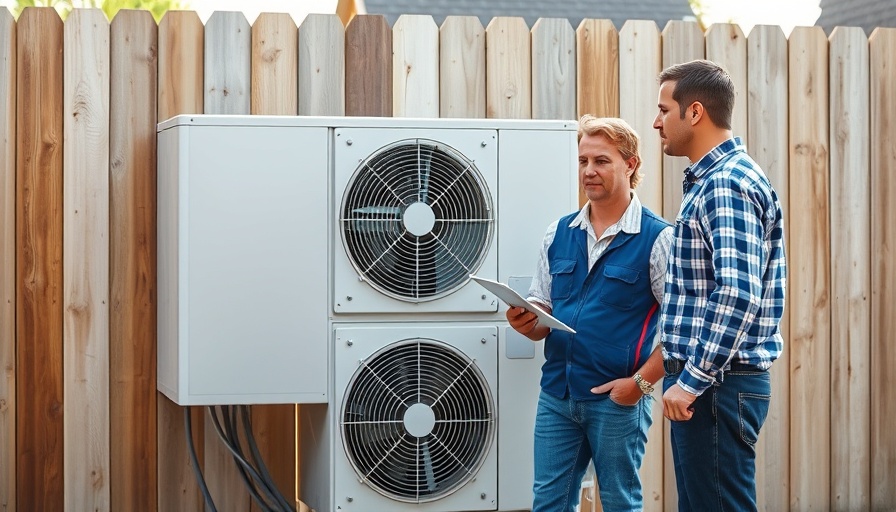
Understanding the EPA's Delayed Steps on Refrigerant Transition
The recent announcement from the Environmental Protection Agency (EPA) to delay some elements of the hydrofluorocarbon (HFC) phase-down has raised eyebrows within the HVAC and property management sectors. Initially scheduled for January 1, 2025, the EPA has pushed back the compliance deadline to January 1, 2026, recognizing that builders often order equipment well in advance, potentially leading to inventory stranded if the original timeline were upheld.
Why This Delay Matters to Homeowners and Businesses
This delay in the HFC phase-down is crucial for homeowners, property managers, and small business owners, as it provides additional time to plan and implement more eco-friendly HVAC solutions. The American Innovation and Manufacturing Act of 2020 authorized the EPA to phase down HFC use by 85% by 2036, but facing compliance too quickly would have allowed only limited options for many installations in residential and light commercial settings.
The Importance of Fresh Air in HVAC Systems
Understanding the purpose of fresh air in HVAC systems is particularly relevant during this transitional period. As regulations evolve, the need for efficient systems that promote good air quality becomes imperative. Modern HVAC systems not only need to comply with refrigerant regulations but also ensure adequate fresh air circulation, especially with rising health concerns. Systems designed with such considerations may offer rebates, making them an appealing option for those looking to upgrade.
Cost Implications and Navigating New Technology
As the EPA calls for manufacturers to phase out high-GWP refrigerants, the cost of transitioning to HFC-free alternatives can be substantial, with estimates exceeding $1 million per store for larger businesses. For homeowners and small businesses considering a new system, understanding this landscape is vital. Many companies are currently exploring more sustainable refrigerants like CO2 and natural alternatives that could, over time, alleviate some of these initial costs.
Future Trends in HVAC Energy Efficiency
With a focus on smart HVAC systems and energy efficiency, property managers should prepare for a future where innovation is not just encouraged but mandated. Homeowners may find it beneficial to research the **best HVAC systems on the market**, as informed decisions could result in long-term energy savings and potentially qualify for utility rebates. The shift toward lower-GWP refrigerants is an exciting area to watch, as more companies innovate to meet regulatory requirements.
Engaging with the Changes: Steps You Can Take
As changes unfold, it's beneficial for homeowners and small business owners to actively participate in discussions about energy efficiency in HVAC systems, keeping an eye on developments that may impact their choices. Whether it's reaching out to HVAC professionals for insights, learning about potential rebates, or understanding installation costs, knowledge is power in navigating these transitions.
Take Action: Stay Informed and Prepared
Transitioning to more sustainable HVAC solutions is not only a regulatory requirement; it is also a step toward better energy efficiency and improved air quality in homes and businesses. By staying informed and updating your systems accordingly, you position yourself strategically in a rapidly evolving market. Consider exploring your options today to ensure compliance and benefit from potential energy savings in the years to come.
 Add Row
Add Row  Add
Add 




Write A Comment